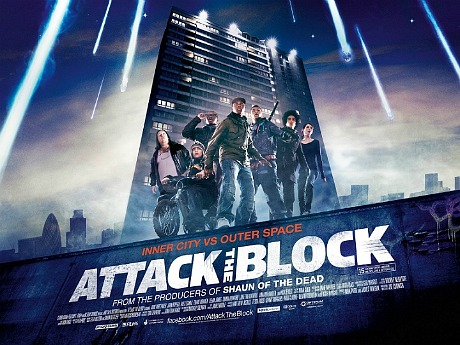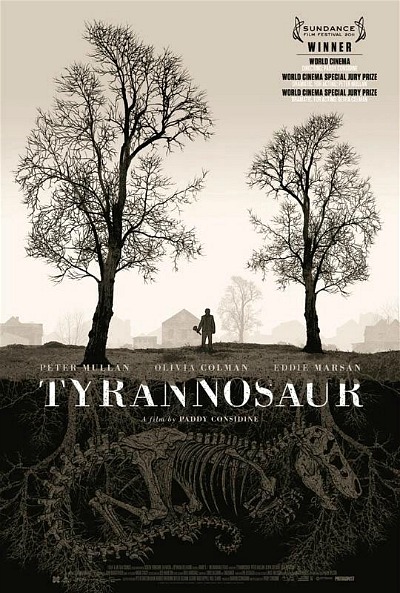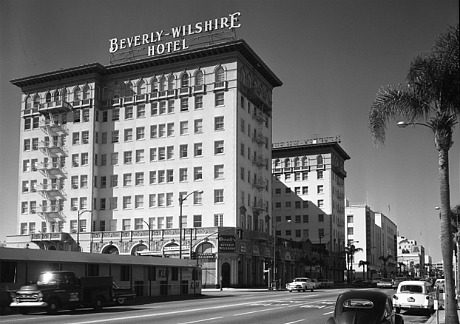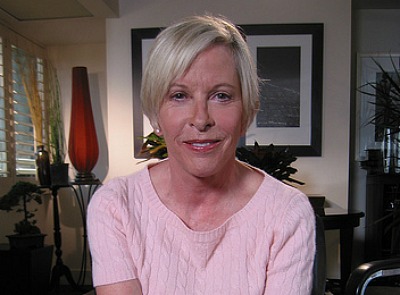A thoroughly adolescent, borderline-retarded thought flashed through my head a while ago, to wit: I’d be far more interested in seeing Guillermo Del Toro‘s Pacific Rim if it was re-titled Pacific Rim Job. A joke for sixth-graders, okay, but I felt an agreeable surge when it hit me. Yes! Better title! But why?
In fact my reasons for entertaining this dopey-sounding thought are entirely reasonable.
One, a consensus is building in the blogosphere that Joe Cornish‘s Attack The Block has exposed the utter worthlessness of spending mountains of money on CG monsters by reminding us that it’s the victims of the monsters (their lives, issues, thematic currents, fears) are what matter most, and in fact are the only things that matter.
Two, the ludicrous CG alien craft in the trailer for Peter Berg‘s Battleship made me sick, and convinced me all the more that Cornish’s film is a breath of fresh air and may in fact represent a kind of nouvelle vague in monster films. It certainly revives a George Romero-ish feeling and reiterates what’s best in this genre.
And three, Guillermo del Toro declared during last weekend’s ComicCon that he feels duty-bound “to film the finest fucking monsters ever committed to the screen, and the greatest fucking robots.” The instant I heard that I said to myself, “Who cares? Monsters are over. They’ve been over-created! And your duty, Guillermo, is to engage and move your audience like you did in Pan’s Labrynth, Chronos and The Devil’s Backbone…okay?”
Which is why if given a choice between Pacific Rim and Pacific Rim Job, I would definitely prefer the latter.












